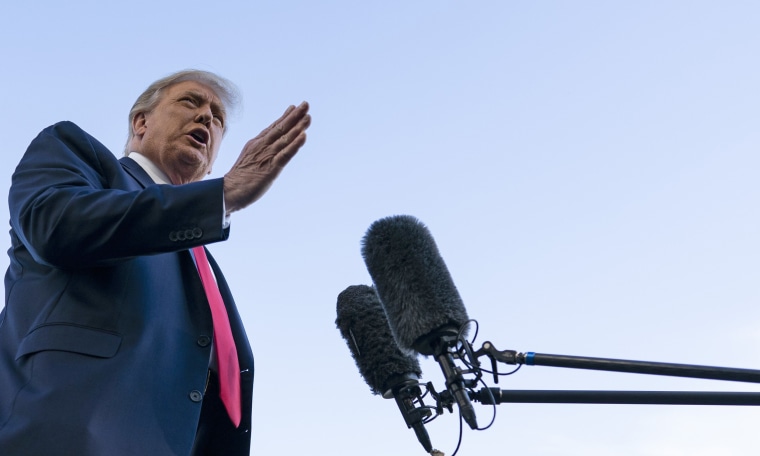Four months ago, MSNBC's Ali Velshi was in Minnesota, covering social-justice protests in the wake of George Floyd's killing. As video helped show, police tried to disrupt a May 30 protest, culminating in Velshi getting hit by a rubber bullet.
At a campaign rally in Minnesota on Friday night, Trump celebrated what transpired.
"I remember this guy Velshi. He got hit in the knee with a canister of tear gas and he went down. He was down. 'My knee, my knee.' Nobody cared, these guys didn't care, they moved him aside. And they just walked right through. It was the most beautiful thing. No, because after we take all that crap for weeks and weeks, and you finally see men get up there and go right through them. Wasn't it really a beautiful sight? It's called law and order."
This is where we find ourselves in 2020: an American president defines "law and order" by pointing to an incident in which police fired on a journalist, without warning or provocation. In the Republican's eyes, it was "a beautiful sight."
For his part, Velshi wrote on Twitter, in a message to Trump, "[Y]ou call my getting hit by authorities in Minneapolis on 5/30/20 (by a rubber bullet, [by the way], not a tear gas cannister) a 'beautiful thing' called 'law and order.' What law did I break while covering an entirely peaceful (yes, entirely peaceful) march?"
MSNBC -- my employer -- added in a statement, "Freedom of the press is a pillar of our democracy. When the President mocks a journalist for the injury he sustained while putting himself in harm's way to inform the public, he endangers thousands of other journalists and undermines our freedoms."
MSNBC's Ayman Mohyeldin also noted in a tweet, "In all of my years covering wars and authoritarian leaders around the world and even with their disdain for a free media, I have never heard one of those leaders call the shooting, targeting and/or injury of a reporter 'a beautiful thing' the way Trump has."
Sometimes the president's authoritarian impulses are subtle; other times less so.
I do see some value, however, in Trump finally defining what he means by "law and order." In fact, hearing the president's remarks, I was reminded of this 2018 op-ed from MSNBC's Chris Hayes: "[T]his is what 'law and order' means: the preservation of a certain social order, not the rule of law."
In Trump's preferred social order, it's apparently worthy of celebration when police fire on journalists who are doing their job.
